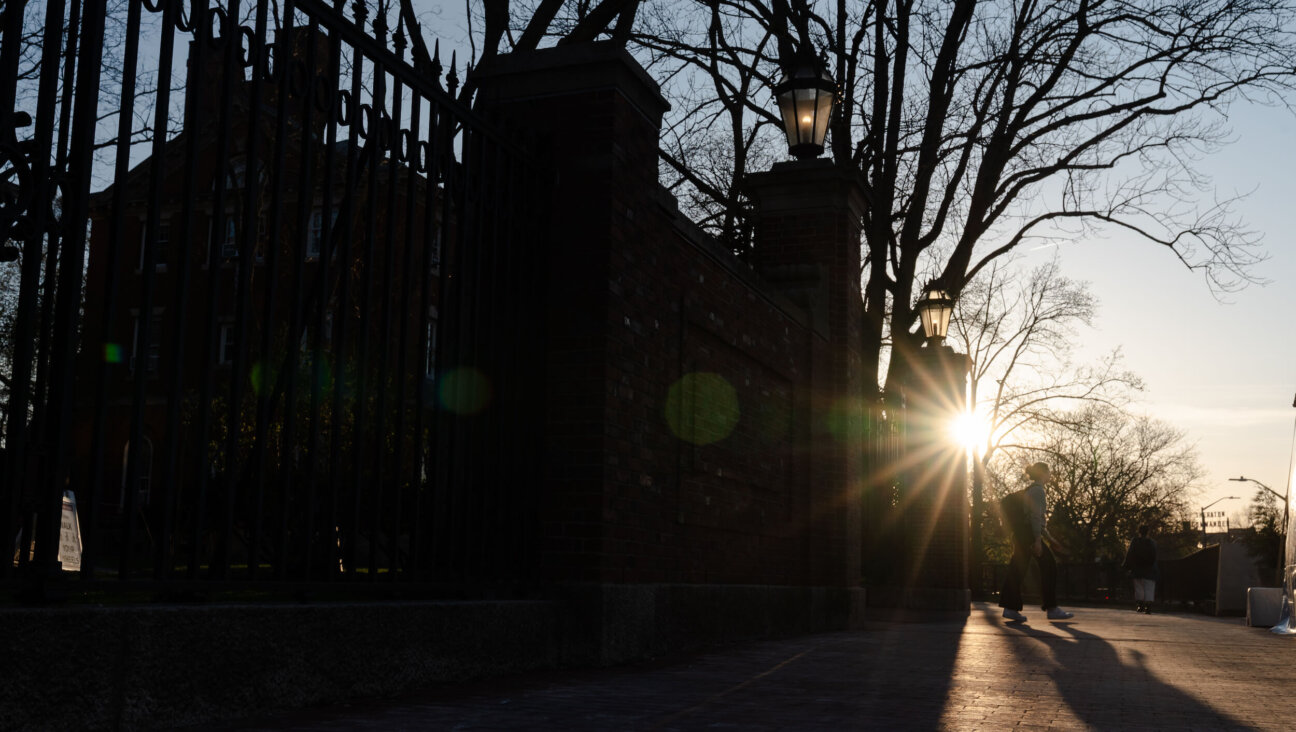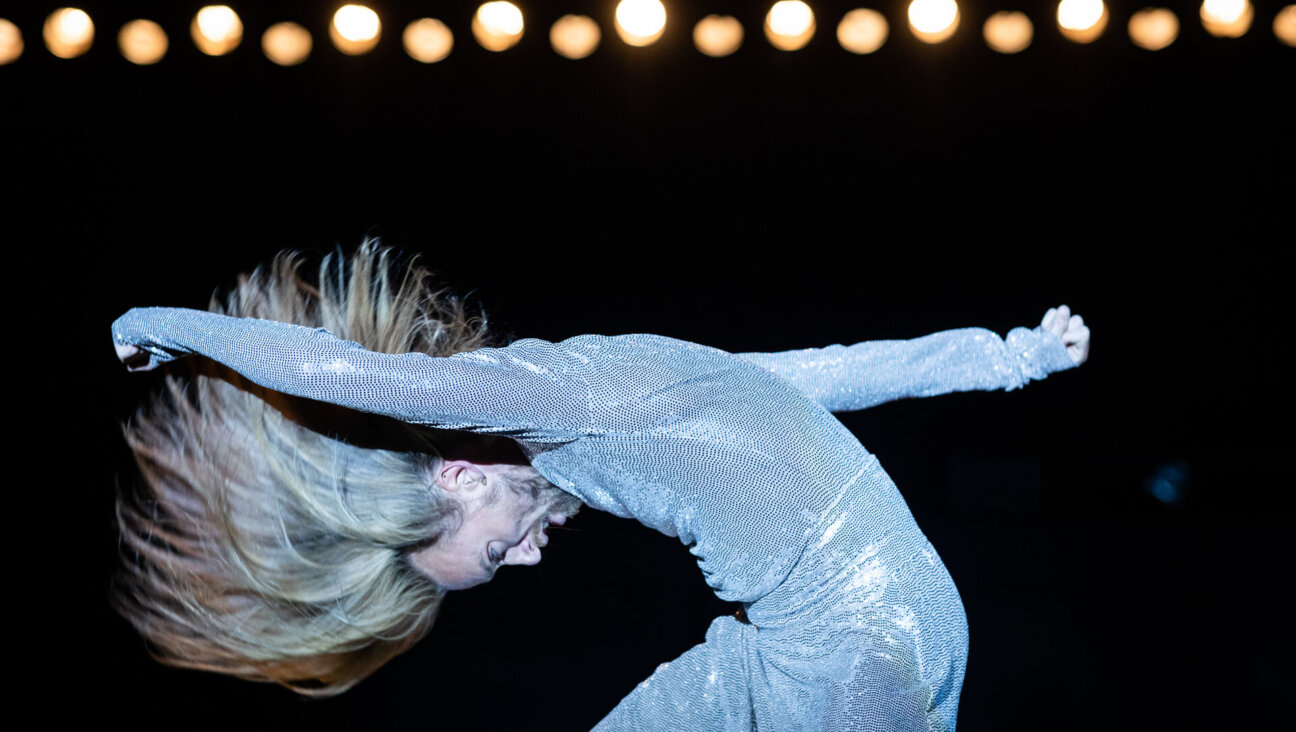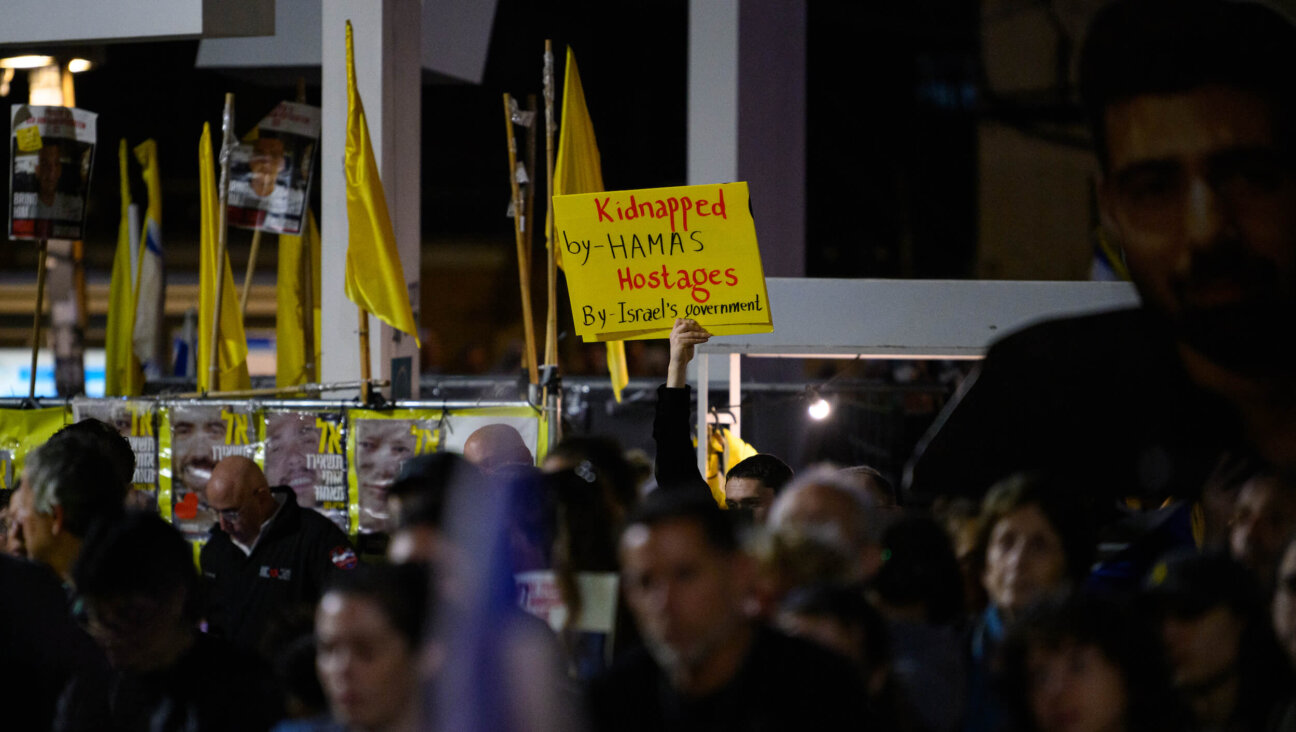I Will Stand Up for the Muslim Brotherhood
The first time I went to interview the Muslim Brotherhood, in 1995, an officer manager at their headquarters on the Nile opened the door with one hand and gave me a headscarf to wear with the other. The second time I went to interview the Muslim Brotherhood, in 2005, no headscarf awaited me.
I was intrigued. I had been living in the United States since 2000, but had heard during visits to Egypt that the Brotherhood, or Al-Ikhwan as they’re known in Arabic, were changing. They’d become fluent in the lingo of reform and democracy. Phrases like “political pluralism” were creeping into interviews they gave to the press.
Was this new Brotherhood for real? The story, as the good ones always are, was a bit more complicated — something worth keeping in mind while reading the seemingly daily reports of government crackdowns against the Muslim Brotherhood and other Egyptian opposition figures.
The Muslim Brotherhood’s leader, Supreme Guide Mohammed Mahdi Akef, started our meeting two years ago by saying all the right things about rejecting violence and choosing instead to take part in elections and other “peaceful ways of bringing about change.” I admit, I was impressed — until I asked him whether the Muslim Brotherhood, if it ever came to power, would change anything in the Egyptian constitution regarding women’s rights.
Arab Islamists may face different challenges, but when it comes to women’s rights, they’re fairly united in their conservative views. In Kuwait they blocked women’s right to vote and run for office until last year. In Jordan they struck down legislation giving women the right to initiate divorce and stood in the way of laws that would toughen sentences handed down for so-called honor crimes. So, I asked the Brotherhood leader, would the Egyptian Islamists be just as bad for women?
“No,” Akef replied, “and my proof is that although you’re naked, you were allowed to enter my office.”
I was wearing a short-sleeved t-shirt and pants.
The word “naked” was particularly grating to my ears because I had worn a headscarf, or hijab, for nine years as a young woman. I chose to wear a hijab at the age of 16, thinking it was a religious requirement, but chose to take it off at 25 after my reading into the issue had convinced me that it was not.
Nevertheless, it took me years to shake off the guilt at rejecting a way of dressing that over the past 15 years has become the uniform of Muslim womanhood in Egypt — thanks in no small part to the Muslim Brotherhood’s efforts. As many as 80% of Egyptian women wear the hijab today.
Maybe if I hadn’t had my own experience with the hijab I might’ve demurred and brushed off Akef’s “naked” jab with a common utterance of many Muslim women who have never covered their hair but believe they should: “When God enlightens me.” But I’d been there, done that, and I was supposedly in the presence of the new and improved Muslim Brotherhood, political pluralism and all. The guilt-trip wasn’t going to work on me.
“I am not naked,” I reminded him. “The verses in the Koran concerning women’s dress have been interpreted differently.”
“According to God’s law, you are naked,” he replied. “Your arms are naked, your head is naked. There is only one interpretation.”
One interpretation? So much for pluralism. Clearly, the Muslim Brotherhood had quite some way to go.
Akef’s position struck at the heart of my concerns over the process of reform and political openness in Egypt. As a secular, liberal Egyptian Muslim who defends the right of everyone to take part in the political process, I am painfully aware of the irony of defending the rights of someone whose principles do not extend me such a courtesy. That “one interpretation” that Akef mentioned was clear proof to my ears that the Muslim Brotherhood continue to act as the guardians of Islam and that anyone who dares to criticize them stands accused of criticizing the religion itself.
But as that same secular, liberal Egyptian Muslim, I believe I must defend the Brotherhood’s presence on Egypt’s political stage. If I don’t, then I am just as guilty as the regime that has for decades sucked the oxygen out of the body politic — and with Gamal Mubarak being groomed to take over the presidency from his aging father, the regime seems set to rule for another generation.
Besides the state, the Brotherhood is the last man standing in Egypt. We’re down to the state and the mosque. The Muslim Brotherhood must remain on Egypt’s political stage, not least so that its ideas are out in the open and can be challenged.
I was in Egypt in 2005 when the Muslim Brotherhood won 88 seats in parliamentary elections, and I remain unconvinced that the majority of Egyptians would vote for them in free and fair elections. Less than 22% of Egyptians turned out to vote in 2005, which to me says most Egyptians want neither the state nor the mosque. They want a real choice.
Those elections capped a year of frenetic activity on the reform front in Egypt, the likes of which I’d never seen in my lifetime. I moved back to Egypt for four months to be a part of it.
Pressured internally by various opponents and street demonstrations and externally by a Washington bent on Arab democratization, the Egyptian regime seemed to bend ever so slightly. But as soon as the Muslim Brotherhood secured a fifth of the seats in parliament, President Hosni Mubarak played his bogeyman card, to great success.
The electoral success in 2005 of the Muslim Brotherhood and in 2006 of its offshoot in Gaza, Hamas, were two main reasons behind the Bush administration’s shelving its push for democracy and reform in the Middle East. With Washington off its back, the Egyptian regime no longer had to play the reform game.
It has spent the past two years imprisoning and hounding its critics. Just this week, it banned the Muslim Brotherhood’s largest annual social gathering — a gala dinner during Ramadan, the month when Muslims fast from sunrise to sunset — for the first time in 20 years. Some 40 members of the group are currently on trial in military court on terrorism and money laundering charges.
That bogeyman card will continue to be a sure bet for the Egyptian regime, so long as there’s not enough room for everyone on Egypt’s political stage. So, “naked” as I am, I’ll continue to defend the Muslim Brotherhood’s right to be on that stage.
Mona Eltahawy is a New York-based writer.
The Forward is free to read, but it isn’t free to produce

I hope you appreciated this article. Before you go, I’d like to ask you to please support the Forward.
Now more than ever, American Jews need independent news they can trust, with reporting driven by truth, not ideology. We serve you, not any ideological agenda.
At a time when other newsrooms are closing or cutting back, the Forward has removed its paywall and invested additional resources to report on the ground from Israel and around the U.S. on the impact of the war, rising antisemitism and polarized discourse.
This is a great time to support independent Jewish journalism you rely on. Make a Passover gift today!
— Rachel Fishman Feddersen, Publisher and CEO
Most Popular
- 1

News Student protesters being deported are not ‘martyrs and heroes,’ says former antisemitism envoy
- 2

News Who is Alan Garber, the Jewish Harvard president who stood up to Trump over antisemitism?
- 3

Politics Meet America’s potential first Jewish second family: Josh Shapiro, Lori, and their 4 kids
- 4

Fast Forward Suspected arsonist intended to beat Gov. Josh Shapiro with a sledgehammer, investigators say
In Case You Missed It
-
Fast Forward Jewish students, alumni decry ‘weaponization of antisemitism’ across country
-

Opinion I first met Netanyahu in 1988. Here’s how he became the most destructive leader in Israel’s history
-

Opinion Why can Harvard stand up to Trump? Because it didn’t give in to pro-Palestinian student protests
-

Culture How an Israeli dance company shaped a Catholic school boy’s life
-
Shop the Forward Store
100% of profits support our journalism
Republish This Story
Please read before republishing
We’re happy to make this story available to republish for free, unless it originated with JTA, Haaretz or another publication (as indicated on the article) and as long as you follow our guidelines.
You must comply with the following:
- Credit the Forward
- Retain our pixel
- Preserve our canonical link in Google search
- Add a noindex tag in Google search
See our full guidelines for more information, and this guide for detail about canonical URLs.
To republish, copy the HTML by clicking on the yellow button to the right; it includes our tracking pixel, all paragraph styles and hyperlinks, the author byline and credit to the Forward. It does not include images; to avoid copyright violations, you must add them manually, following our guidelines. Please email us at [email protected], subject line “republish,” with any questions or to let us know what stories you’re picking up.











